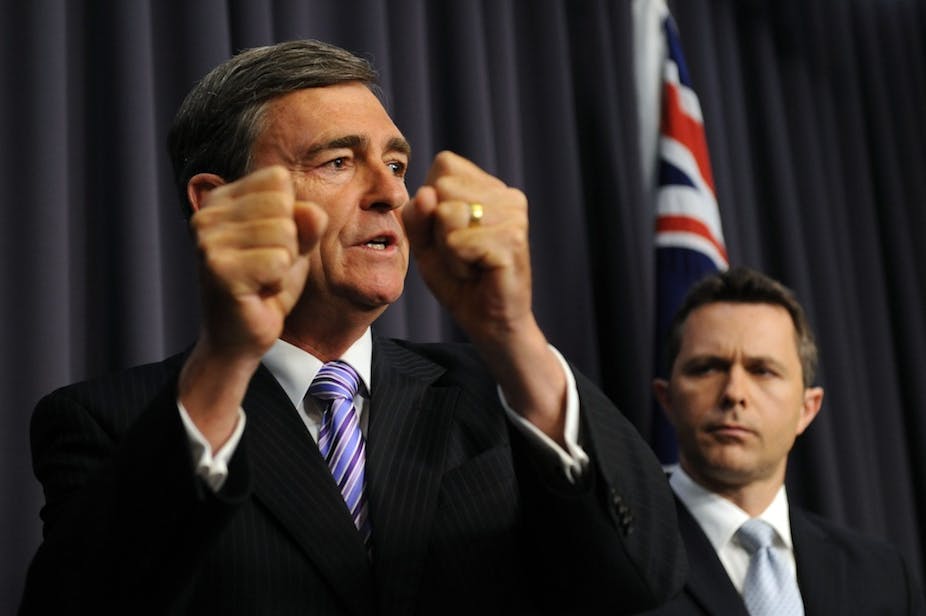It’s hard to get too excited over Prime Minister Julia Gillard’s recent announcement of a radical overhaul of Australia’s Anti-Dumping administration with the proposed creation of a new Dumping Commission and the allocation of more funds to run it.
“Yes Prime Minister” we may well say, because it is not easy appearing to do something while leaving the overall policy settings unchanged. That we shouldn’t get too excited is underlined by the Opposition’s response that the Government has stolen their ideas again. Radical this overhaul will be not.
The Prime Minister’s announcement follows yet another review into Australia’s anti-dumping and countervailing (subsidy) regime, this time by the former Victorian Labor Premier, John Brumby.
Mr Brumby’s 153 page report is a good read and justifies the creation of the New Anti-Dumping Commission with eloquence and style rather than substance. It’s finding that the new Commission is to be based in Melbourne should hardly be surprising now, should it?
Dumping is prohibited, we all know that. The signs are everywhere. What is not as well-known is what is prohibited and why. Three elements or components need to be in place. When a manufacturer sells to their export markets at lower prices than they do to their own domestic markets the first leg of the dumping trifecta is in place.
This international price discrimination is the heart of the problem. That such pricing behaviour might just be an appropriate business response through marginal costing or that it might be an advantage to Australia’s consumers or secondary manufacturers is often overlooked.
The second leg requires that the Australian domestic industry producing the like goods suffers material injury. The key here is the ill-defined requirement that the injury being experienced is material.
The former Anti-Dumping Authority, perhaps as a signpost to its eventual demise, turned its collective mind to answering a Minister’s question about how “material” should be defined. The finding was that material injury was injury being suffered by an Australian industry that was not “insubstantial or immaterial”. No wonder they went out of business!
In practice the injury determination is on the basis of demonstrated loss of market share, depressed prices and loss of profits. A wonderful field of spread sheets, graphs and analytical hocus pocus. Materiality seems to automatically follow.
The final requirement is that the established dumping must have caused the injury. This causal link is fundamental to the equation but a subjective one and in the main overlooked in both evidence and substance. Logically all competition causes injury. That much of Australian industry complaints about low priced imports proves not be a consequence of dumping but rather due to production efficiency and scale overseas continues to confound our manufacturing sector.
So will the new Anti-dumping Commission reduce these complaints? It is hard to see how. All that is to change, along with a move to Melbourne, is that the ranks of administrators will swell with some no doubt well-earned promotions into the Senior Executive Service for some of the administrators and the line of reporting will now be direct to the Minister rather than through the CEO of Customs and Border Protection.
The trouble is that in effect this has been the reporting line to date. The CEO of Customs has always been a silent player in the process. The Dumping Branch has always been regarded as something peculiar or even a pariah by the Customs Executive and certainly not part of their core business. That the CEOs name will no longer appear on the many statements of claim to the Federal Court will no doubt ease the CEOs mind but in practice there will be no other real effect.
How will the promised $24 million funding be spent? Well the opportunity to engage more investigators with pertinent skills should be applauded. At the same time there is quite a steep learning period ahead for these new people and the productivity return will be slow. Given that the Australian anti-dumping investigators are faced with the world’s shortest time-frame within which to complete their report and recommendations having extra staff should ease their load.
Having more cops should also mean a rise in crime rate. Right? This will be the really interesting aspect to watch.
Will all this energy push Australia away from the middle ground and the excellent international reputation we have for transparency and even-handedness towards the position of the United States (and new players like India and Turkey) who finds itself the target of protectionist criticism about their anti-dumping approaches and the subject of much of the time of WTO dispute panels?
I am sure this is not want the Government wants nor will it be what the new Commissioner wants. When the new Commissioner goes to Geneva she will want to enjoy the crisp white wine and the excellent Chateaubriand at the La Perle du Lac with the earnest expression of a trade negotiator and not the worried one of an official defending a WTO dispute matter.

